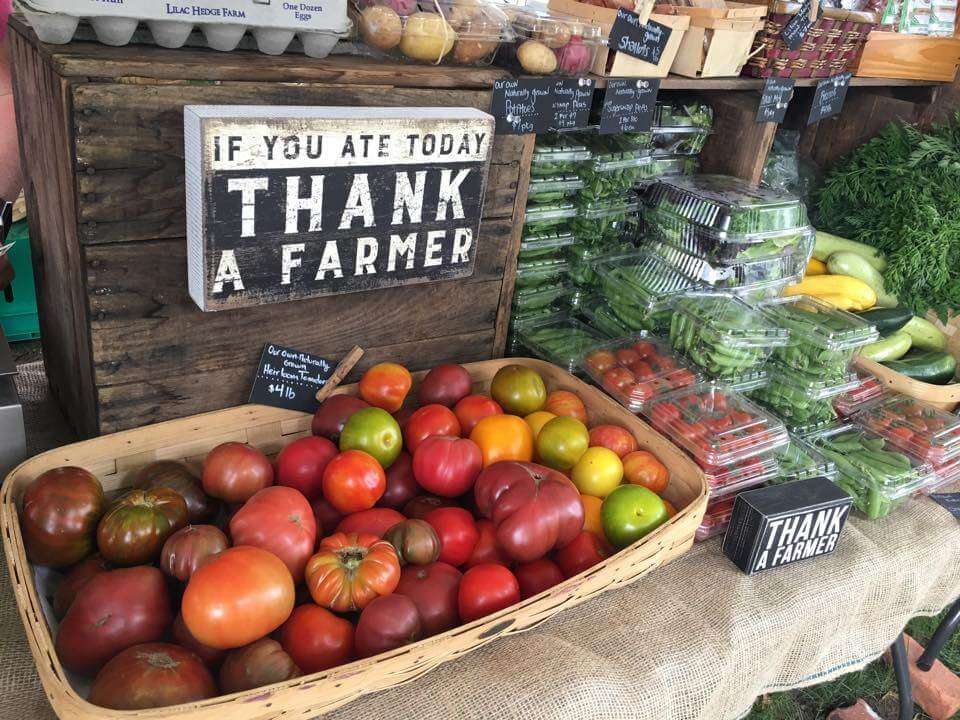Consumers think of farmers markets as clean, safe and wholesome, the antidote to larger-scale commercial produce growing. They have an idealized image of where the food comes from and how it gets to them. But new research shows there may well be a link between shopping at farmers markets and foodborne illness.
There’s no way – yet – to establish a causal link between farmers markets and foodborne illness, but a new study by University of Minnesota researchers Marc F. Bellemare and Ngoc (Jenny) Nguyen published this month in the American Journal of Agricultural Economics suggests there is a persistent correlation between the two.
Without being able to trace individual cases back to particular sites, the researchers instead looked at the number of farmers markets every year in each state in the U.S. over the past two decades and the number of cases and outbreaks of foodborne illnesses reported to the U.S. Centers for Disease Control. They took the number of cases and outbreaks of food-borne illness per capita in each state-year observation, then used linear regression to analyze the relationship between food-borne illness and farmers markets per capita in the same state-year observation.
‘Persistent, Positive Correlation Between The Two’
While Bellemare is quick to point out that no causal, scientifically inarguable link exists between farmers markets and foodborne illnesses, the statistical information was striking.
“We don’t have access to the gold standard of empirical evidence, a controlled experiment,” Bellemare says. “I can’t ascertain causality, I can’t tell you the stuff at farmers markets is worse. I can’t tell you that, but what I can tell you is that there’s a persistent, positive correlation between the two–the two variables move together, no matter how we slice the data.”

Marc Bellemare
Many growers who peddle their wares at farmers markets are too small be covered by state and federal regulatory guidelines.
Over 40% Have No Food Safety Standards
There have been limited studies that have previously suggested a link between farmers markets and foodborne illness. A 1992 study analyzed over 1,500 samples of ten different types of vegetables and found that those from farmers markets were much more likely to contain Campylobacter contamination.
Another more recent study from 2013 showed that chicken sold at farmers markets is more likely to test positive for Salmonella or Campylobacter than chicken sold at supermarkets.
Another 2013 study interviewed 45 farmers market managers in Georgia, Virginia, and South Carolina about food safety practices and found that “over 42% [of farmers market managers] have no food safety standards in place for [their] market … less than 25% of managers sanitize market surfaces [and] … [o]ver 75% of markets offer no sanitation training to workers or vendors.”
And a report from 2016 found that “people who shopped or ate at farmers markets [in the past two weeks] were much more likely (20% vs. 2.5%) to say they had food poisoning in the past two weeks than people who did not eat or shop at a farmers market.”
But Bellemare did not expect his study to show any positive correlation between farmers markets and foodborne illnesses. The team tracked data starting from 2004 and ending with 2013 for their research and found that as the number of farmers markets per capita grew in any given state, the number of per capita foodborne illnesses increased as well.

Consumers assume local means safe
Smoke’s Not Fire — But A Deeper Look Is Needed
“I really didn’t expect I would find a relationship between the two. I was primarily doing this to get seed money from an institute here at the University of Minnesota, see whether we could come up with some data, and then I thought we’d write a report that says we couldn’t find a relationship between farmers markets and foodborne illness,” Bellemare says. “But lo and behold, the correlation between total cases and outbreaks is persistently positive in our data.”
What Bellemare can tell you is that the research suggests a deeper look into the matter is needed.
“What I do know is that generally, food safety problems arise from food preparation – what I don’t want people to leave with is that the food [from farmers markets] is worse. One candid explanation given me by one of my master’s students was, ‘Oh this doesn’t surprise me at all — on weekends I go to brunch with my friends and leave all the stuff I just bought at the farmers market on the backseat of my car.,’ which is one way of providing pathogens with a new ecosystem in which to thrive.”
“There really is no rhyme or reason why something that comes from your municipality or your district or your county should be any more or less safe, it could really go either way. If there’s any takeaway from this, it’s take everything with a healthy dose of skepticism. Our study identifies correlation, not causation, but as with every correlation, there is a likelihood that it could be causal–the precautionary principle suggests you should just wash your produce before you prepare it anyway.”


